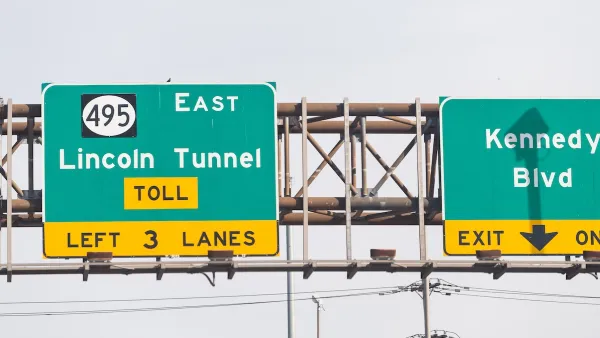A study from MIT's Department of Mathematics provides new means of understanding how traffic jams form.
The mathematicians discovered that "jamitons" (their name for the equations that describe traffic jams) are strikingly similar to the equations that are used to describe detonation waves produced by explosions.
"The equations, similar to those used to describe fluid mechanics, model traffic jams as a self-sustaining wave. Variables such as traffic speed and traffic density are used to calculate the conditions under which a jamiton will form and how fast it will spread.
Once such a jam is formed, it's almost impossible to break up -- drivers just have to wait it out, says Morris Flynn, lead author of the paper."
FULL STORY: Mathematicians Take Aim At 'Phantom' Traffic Jams: New Model Could Help Design Better Roads

Analysis: Cybertruck Fatality Rate Far Exceeds That of Ford Pinto
The Tesla Cybertruck was recalled seven times last year.

National Parks Layoffs Will Cause Communities to Lose Billions
Thousands of essential park workers were laid off this week, just before the busy spring break season.

Retro-silient?: America’s First “Eco-burb,” The Woodlands Turns 50
A master-planned community north of Houston offers lessons on green infrastructure and resilient design, but falls short of its founder’s lofty affordability and walkability goals.

Test News Post 1
This is a summary

Analysis: Cybertruck Fatality Rate Far Exceeds That of Ford Pinto
The Tesla Cybertruck was recalled seven times last year.

Test News Headline 46
Test for the image on the front page.
Urban Design for Planners 1: Software Tools
This six-course series explores essential urban design concepts using open source software and equips planners with the tools they need to participate fully in the urban design process.
Planning for Universal Design
Learn the tools for implementing Universal Design in planning regulations.
EMC Planning Group, Inc.
Planetizen
Planetizen
Mpact (formerly Rail~Volution)
Great Falls Development Authority, Inc.
HUDs Office of Policy Development and Research
NYU Wagner Graduate School of Public Service




























